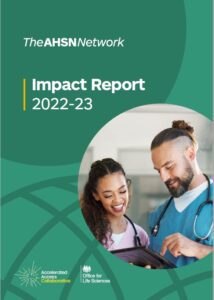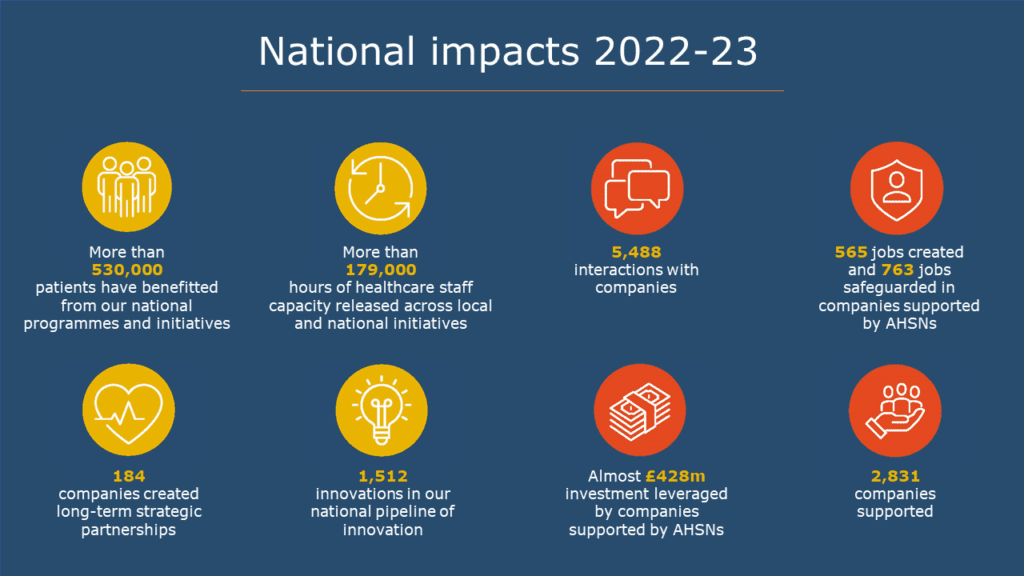A message from our Chair
AHSNs have transformed the way the NHS identifies, adopts and spreads promising innovations.
In our first decade we have improved health outcomes and supported economic growth, both individually and working together as the AHSN Network.
Since 2018 our national initiatives have benefited more than 2.3 million patients, and our support to innovators has helped contribute more than £1.8bn to UK PLC, created or safeguarded more than 6,600 jobs, and delivered a return on investment of almost £3 for every pound.
As we begin our third five-year licence, now as Health Innovation Networks, I would like to thank all my colleagues from across the Network and partner organisations for their dedication and support. We will continue to champion and support scale-up of the best healthcare innovations to improve health, support the NHS, and achieve economic growth.
Professor Gary Ford CBE, FMedSci
Chair of the AHSN Network and Chief Executive of Oxford AHSN
2022-23 impacts

There is a wealth of HealthTech innovators poised to help solve some of the NHS’ greatest challenges, yet getting a product or new technology adopted at scale in the NHS is far from straightforward. In a recent ABHI member’s survey*, procurement was cited as one of the biggest barriers that innovators face, particularly those from [...]

Tellmi is a social enterprise innovation which aims to address the growing demand for mental health services and tackle health inequalities for young people. It is a digital peer support app available launched in 2017 by psychologist Suzi Godson PhD and engineer Kerstyn Comley PhD. Kersytn explains how Tellmi works. Tell us about the innovation. [...]

The NHS is facing record demand for services. According to The Health Foundation, the NHS waiting list for elective treatment in England has almost tripled in size over the last decade to 7.7 million. And latest figures show there were a record 2.35 million attendances at A&E across England in March this year. We know [...]








